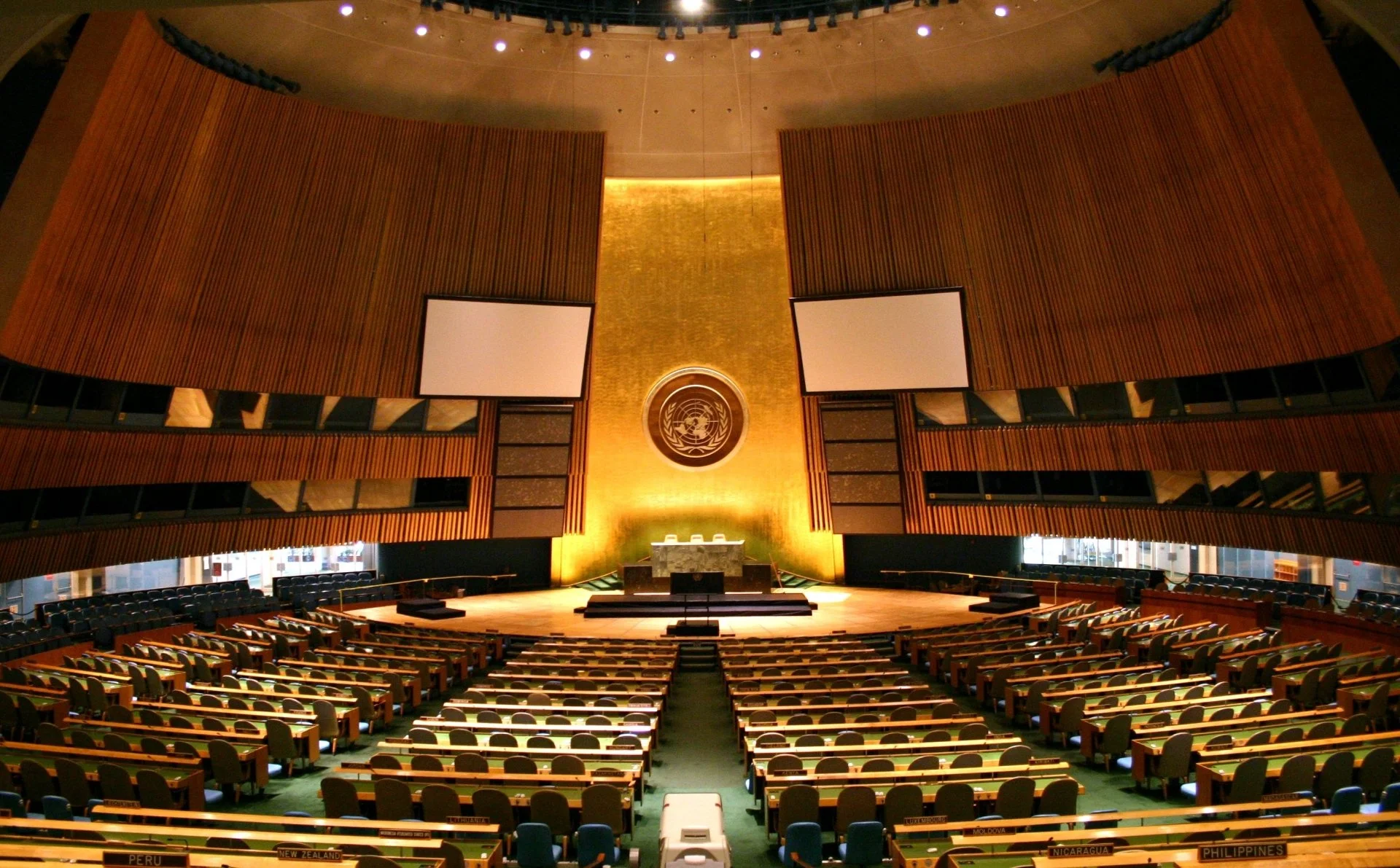Tug of War between Automation and Augmentation: Where Will You Stand?
United Nations General Assembly Hall. (Photo/Wikipedia)
By Sneha Shree Saikia
As world leaders left NYC after the 80th United Nations General Assembly (UNGA)—marked by the launch of the Global Dialogue on AI Governance and an Independent International Scientific Panel on AI—their profound speeches left one question hanging in the air: Is AI rewriting the rules of who works and how?
AI is no longer a futuristic promise in the workforce; it is a reality that changes our everyday life, from the cold emails we prompt it to write for us to the algorithms that quietly drive logistics, finance, and production across our economies. After attending UNGA sideline events and listening to world leaders, I was struck by how deeply AI is woven into nearly every conversation on global development—from agriculture and education to healthcare and climate resilience—revealing just how central this technology has become to shaping our collective future. The event “Advancing Development in the Age of AI” held at the Indian Consulate as part of India Day@UNGA especially gripped me with a stirring question: How do global inequality and development influence who keeps or loses their jobs to AI automation?
An invisible string ties the impact of AI on labor participation to the income level of the country. According to the International Labour Organization (ILO), 25 percent of all jobs worldwide are in occupations potentially exposed to generative AI—rising to about 34 percent in high-income countries. Most middle and low-income countries still lack the digital infrastructure that enables widespread automation, as their largest sectors are still driven by manual labor. During the UNGA session, however, World Bank executive Lauren Tilstra added that persistent gaps in labor-force participation, especially in developing economies, still threaten to leave millions behind in this transformation. Without reskilling and inclusive access, she cautioned that AI could entrench inequalities rather than bridge them.
Workers in advanced economies with higher digital literacy have been able to adapt more quickly by integrating AI tools into their daily tasks. A paradox, however, soon emerges: nations advancing AI innovation are also the ones standing closest to its disruptive edge. With digital skills now central to economic and social resilience in the twin green-and-digital transition, AI can increasingly substitute human effort. The transition will be painful for many who fall on the wrong side of this technological shift, like the clerk at a doctor’s office or the call center worker answering your concerns. Advanced economies have the most to gain and, at the same time, the most to lose from the AI revolution.
Nevertheless, replacing jobs with AI is not as straightforward as it sounds. While AI can automate a wide range of tasks, employers are still learning how to integrate it efficiently alongside legal and ethical concerns regarding AI workflows. With the distance between theory and practice granting us a window of time, we must race to develop a framework for responsible and effective AI use.
Meanwhile, developing countries must focus on building the digital infrastructure and inclusive labor policies needed to participate in an AI-driven global economy. These economies have an opportunity to leapfrog traditional industrialization models by using AI to fill major gaps in key industries such as health, education, and energy. Research shows that while there is no single roadmap for AI ‘catch-up’, targeted investments in infrastructure, human capital, and governance could enable AI to become a developmental tool rather than a threat.
The path to sustainable AI integration to the workforce will require responsible AI governance, which is an international responsibility. The UN has already adopted principle statements: the "Principles for the Ethical Use of AI" were endorsed in 2022, and the Secretary-General's AI Advisory Board released guiding principles for member-statess in its "Governing AI for Humanity" report. But policymakers have yet to create income-sensitive labor policies that address digital literacy gaps in developing economies and workforce transitions in advanced ones. Only by moving beyond multilateral dialogue can UN platforms truly catalyze income-sensitive labor policy in the age of AI.
Reskilling, digital literacy, and adaptive learning must become the new foundations of labor policy. If automation can take away repetitive tasks, it can also open up space for more creative, critical, and humane forms of work, provided that workers are equipped to evolve alongside the technology that is reshaping their livelihoods. If we can pair innovation with accountability, AI could become the most powerful development equalizer of our time.

